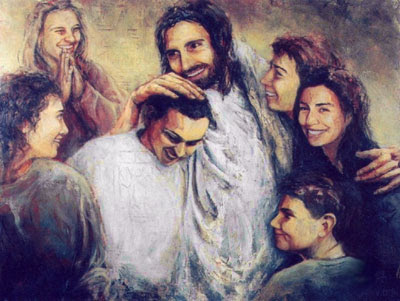From a treatise on the psalms by Saint Hilary of Poitiers
| The meaning of "the fear of the Lord" |
|---|
| |
|---|
Blessed are those who fear the Lord, who walk in his ways.
Notice that when Scripture speaks of the fear of the Lord it does not
leave the phrase in isolation, as if it were a complete summary of
faith. No, many things are added to it, or are presupposed by it. From
these we may learn its meaning and excellence. In the book of Proverbs
Solomon tells us: If you cry out for wisdom and raise your voice for
understanding, if you look for it as for silver and search for it as for
treasure, then you will understand the fear of the Lord. We see here the difficult journey we must undertake before we can arrive at the fear of the Lord.
We must begin by crying out for wisdom. We must hand
over to our intellect the duty of making every decision. We must look
for wisdom and search for it. Then we must understand the fear of the
Lord.
“Fear” is not to be taken in the sense that common
usage gives it. Fear in this ordinary sense is the trepidation our weak
humanity feels when it is afraid of suffering something it does not want
to happen. We are afraid, or made afraid, because of a guilty
conscience, the rights of someone more powerful, an attack from one who
is stronger, sickness, encountering a wild beast, suffering evil in any
form. This kind of fear is not taught: it happens because we are weak.
We do not have to learn what we should fear: objects of fear bring their
own terror with them.
But of the fear of the Lord this is what is written: Come, my children, listen to me, I shall teach you the fear of the Lord.
The fear of the Lord has then to be learned because it can be taught.
It does not lie in terror, but in something that can be taught. It does
not arise from the fearfulness of our nature; it has to be acquired by
obedience to the commandments, by holiness of life and by knowledge of
the truth.
For us the fear of God consists wholly in love, and
perfect love of God brings our fear of him to its perfection. Our love
for God is entrusted with its own responsibility: to observe his
counsels, to obey his laws, to trust his promises. Let us hear what
Scripture says: And now, Israel, what does the Lord your God ask of
you except to fear the Lord your God and walk in his ways and love him
and keep his commandments with your whole heart and your whole soul, so
that it may be well for you?
The ways of the Lord are many, though he is himself
the way. When he speaks of himself he calls himself the way and shows us
the reason why he called himself the way: No one can come to the Father except through me.
We must ask for these many ways, we must travel along
these many ways, to find the one that is good. That is, we shall find
the one way of eternal life through the guidance of many teachers. These
ways are found in the law, in the prophets, in the gospels, in the
writings of the apostles, in the different good works by which we fulfil
the commandments. Blessed are those who walk these ways in the fear of
the Lord.

